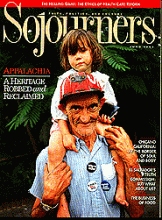Country is America's music, they say, just like the Dallas Cowboys are America's team. ("They" really mean white America.) Country music has dented the cultural mainstream again recently: Country records top the overall pop music charts; country music TV specials draw big ratings; and national magazines proclaim a country renaissance, heralding a "new breed" of sophisticated country artists.
It is not all hype. Granted, a lot of mediocre Garth Brooks clones in cowboy hats are trying to substitute three names, a shag haircut, and good pectorals for paying dues. But a pretty amazing body of quality work is being offered in country music today, much of it firmly and ferociously rooted in country traditions--like Allan Jackson's honky-tonk wail and Marty Stuart's rockabilly kick.
Great country revivals seem to happen periodically. Country singers (Patsy Cline, Ray Price, and others), backed by lush orchestration, topped the pops in the 1950s with the "country-politan" fad. The great folk music boom of the 1960s, when a market opened briefly for all things authentic, brought in another period of country hype. Bill Monroe and his many bluegrass descendants especially profited from this career opportunity.
There was also the great urban cowboy scare of the late 1970s. Who can forget John Travolta doing the Cotton-Eyed Joe? As this pattern suggests, urban and coastal America is perpetually opening its door a crack for its cracker cousins, then getting bored or embarrassed and slamming it shut again.
Read the Full Article

